Stories
March 7, 2024
Interviewed and written by Sam Hofman
Juvie is a human rights defender from the Philippines. In 2023, she was a guest in Shelter City Maastricht. Through an interview with Sam Hofman, Juvie details her human rights journey.
Juvie began her grassroots activism by volunteering in non-governmental organizations right after her master’s. Volunteering slowly turned into a full-time job and after a few years, she began the work that she has now been doing for well over a decade.
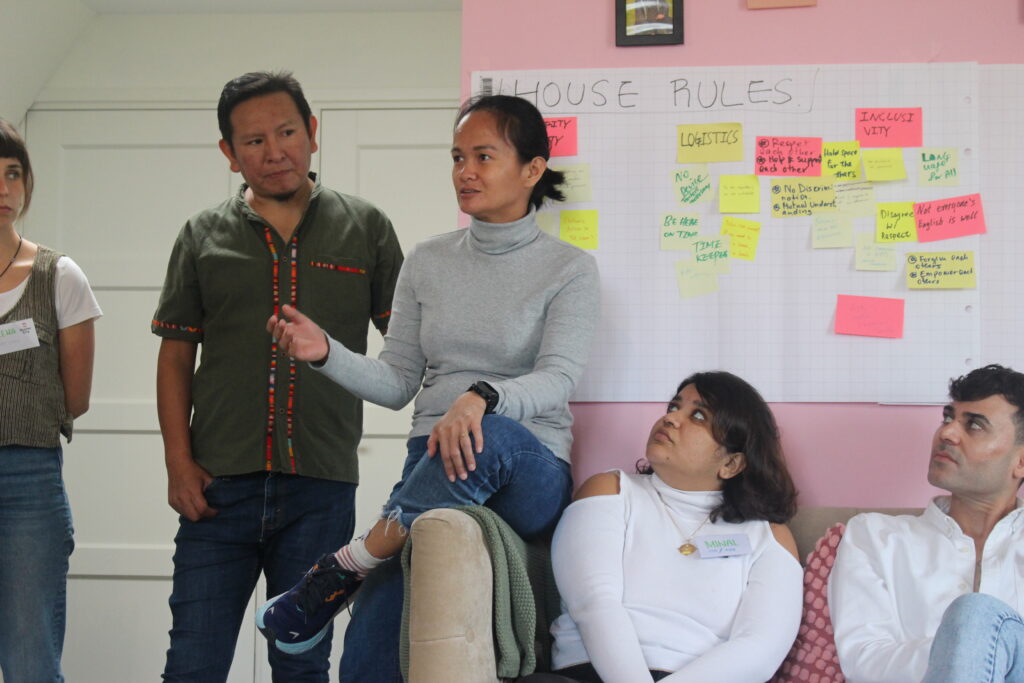
Juvie and her colleagues at Task Force Detainees of the Philippines are likely the first on site when it comes to interviewing family members of victims of extrajudicial killings or human rights violations. They employ contacts in the community, monitoring online forums, and a large volunteer group that update them on new extrajudicial killings that have taken place. Her work is key to ensuring accountability and a step towards bringing justice to the victims’ families. As she is often handling emotionally taxing cases, Juvie explains that her work had greatly impacted her to such an extent that it became necessary to take a break.
“I became numb to killings, I wasn’t shocked by them anymore, but when I was asleep, I would get terrible nightmares of the killings I saw.”
Juvie’s work began with documenting crimes committed against indigenous communities living on the island of Mindanao. Some of the communities that Juvie has worked with are the Higaonon tribe in Bukidnon, Blaan tribe in Santos City, the Tboli tribe in South Cotabato, and many more. The issues that they are faced with vary, with some trying to reclaim ancestral land whereas others are harassed by companies to leave.
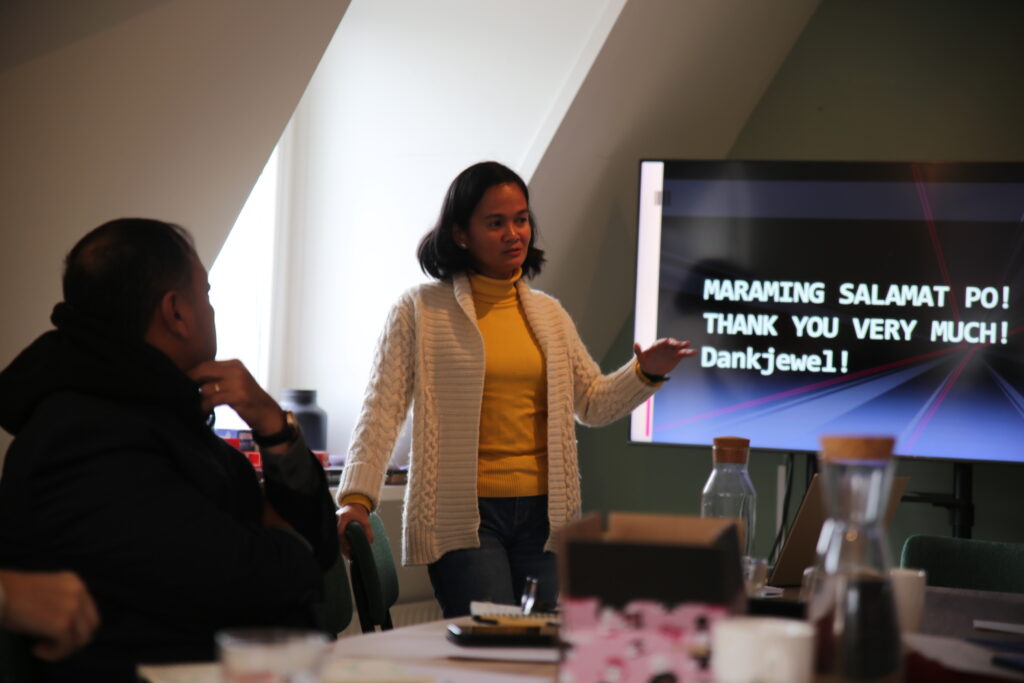
“The indigenous people have a very deep connection with the environment. The environment is their life, the forest is their home, they get their medicine in the forest, they pray for the gods in the forest, they have their own culture.”
Despite being guardians of the forest and it being their ancestral domain , indigenous communities are consistently branded by the government as communist sympathizers and red-tagged.
Red-tagging1 is practised by the government to label an individual, group, or organization as communists or communist sympathisers, and can lead to harassment from both public and private companies. The continued practice of red-tagging and lack of national protection mechanisms or oversight has led to the Philippines becoming the deadliest place2 for human rights defenders and indigenous peoples protecting their ancestral lands.
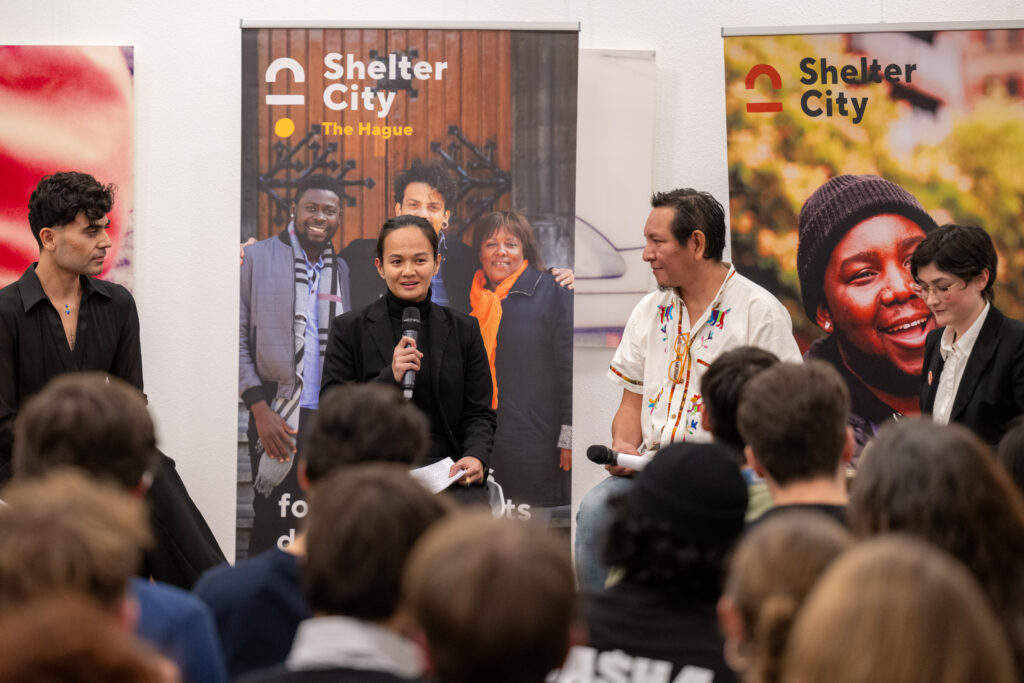
Indigenous communities often face threats against their lands and homes by companies looking to exploit land for profit. Although Juvie has found herself in dangerous situations in documenting human rights violations against indigenous peoples, she remains committed to her work as it is the only means of ensuring that the human rights violations don’t go unnoticed.
“During that time, we went to document cases against the indigenous peoples’ communities. While we were documenting the illegal use of their land, security guards of the private companies started shooting at us. They chased after us to get us off the land. Even after this, I continued to document the next day”.
Documentation is a key tool against ongoing injustice and to ensure accountability. When interviewing victims or families of victims of human rights violations, Juvie explains that while the process may take a long time, documentation can lead to justice.
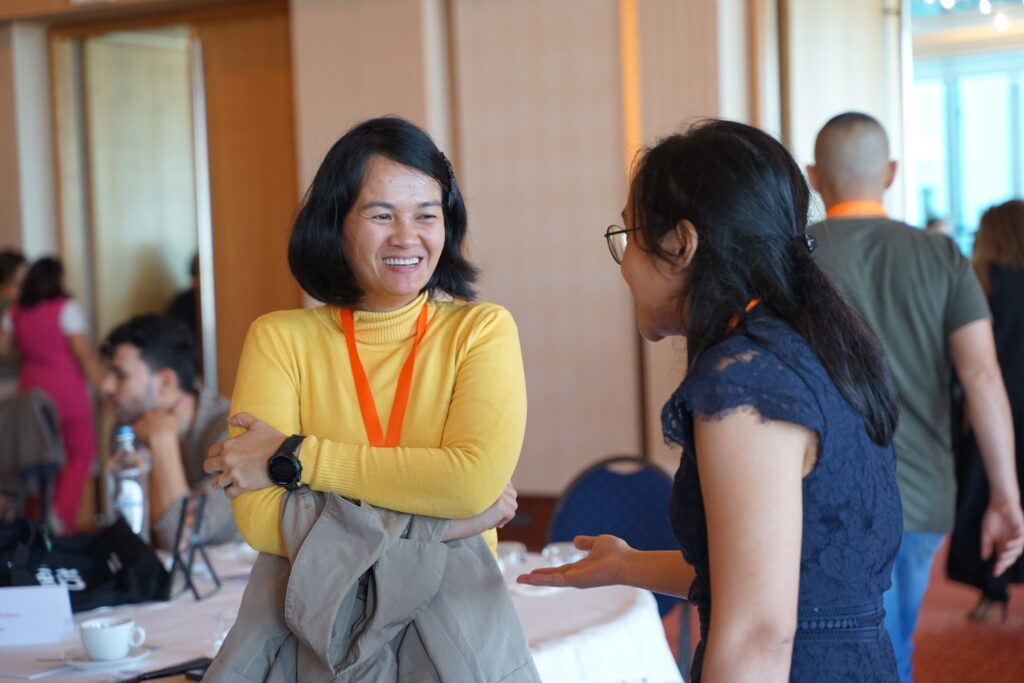
After Duterte was elected president of the Philippines in 2016 and following his deadly “war on drugs” that led to the murder of over 30,0003 Filipinos between 2016 to 2019, there began a shift in Juvie’s work. The organization began to document the increase of extrajudicial killings in this context with continued violations against indigenous communities taking place under the guise of the “war on drugs”.
At the height of the extrajudicial killings in 2018 and 2019, Juvie was busy interviewing families of victims, going for periods of three days at a time, working on a tight schedule, even receiving messages of human rights violations in the evening and planning how to get to them the next day. During this period, she and her colleagues had to make sure to exercise caution as people were monitoring her.
“…me and my colleague need to do it fast for our security. Going there we would have to constantly change the route that we take, we are always being monitored but cannot say by who”.
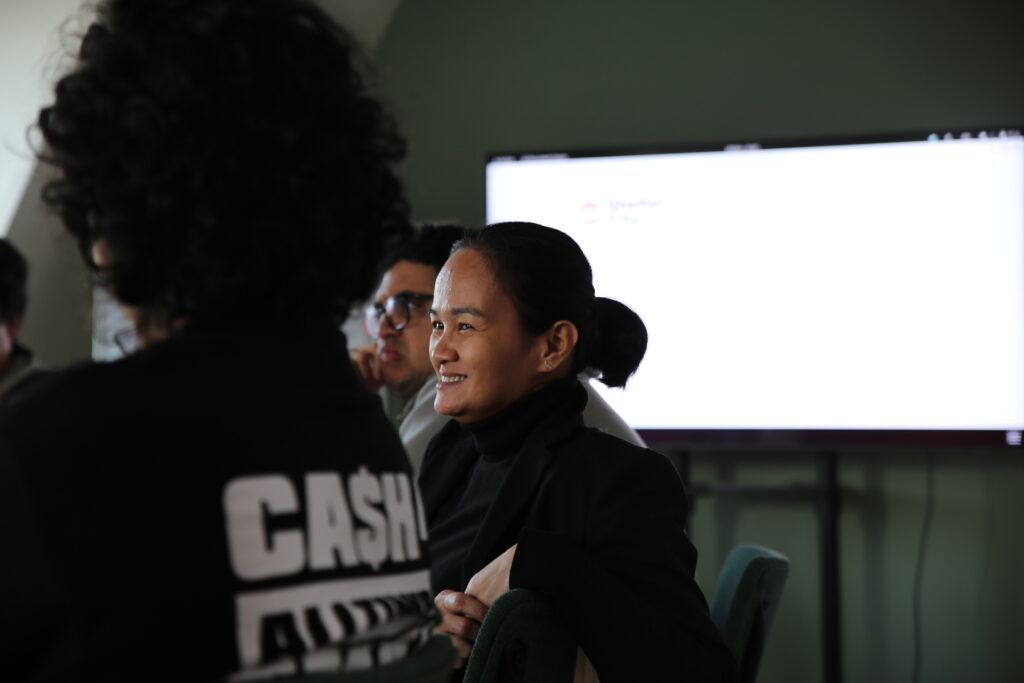
Even when the stories in the interviews are emotional and the situation is dire, she holds herself firm to provide comfort to the people she meets. She regularly interviews widows who have lost their husbands, and in such cases, it is often the husband who was supporting the family financially.
“It is very difficult to hear, especially for me as a woman. You see the situation, the poverty of the family, the victim is the breadwinner, and the wives are crying and asking you what they should do. How will they raise their families?”
Dealing with so many similar cases and being constantly monitored significantly impacted Juvie’s physical and mental health.
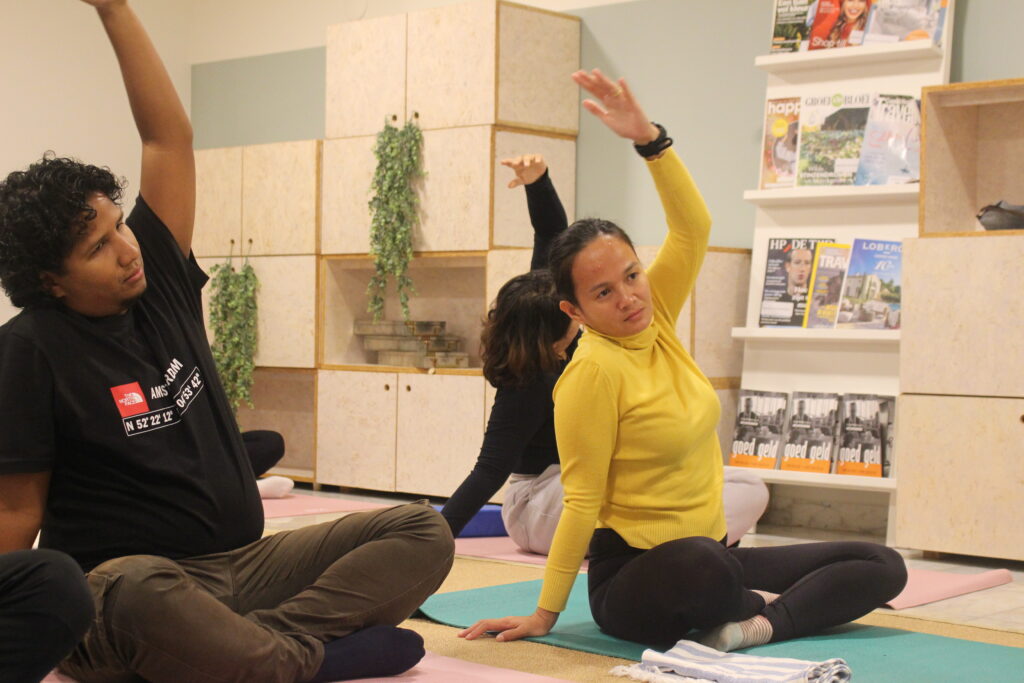
“I felt so tired, the burden is very heavy. I started dreaming of dead bodies. I felt tired and felt like I wanted to give up. I decided that I should come here. Now I feel renewed and re-energized”.
In 2023, Juvie spent three months in Shelter City Maastricht, surrounded by nature in the south of the Netherlands and a welcoming community.
“I felt valued here. When I tell people, even if not from Shelter City, about my work, they will be so amazed and value what I do. It is a good feeling to be valued”.
During her stay, she received mental health support and gained the confidence to meet with funders of her organization. Now, she is pushing for an increase in mental health awareness in her organization for her and her colleagues.
Being a mother, she continues to be driven and passionate to create a better world for her son and his generation. “I don’t want them to experience the pain I experience now.” Even though change may take a long time to realize, Juvie believes that:
“One day it will happen, and more people will care about human rights”.
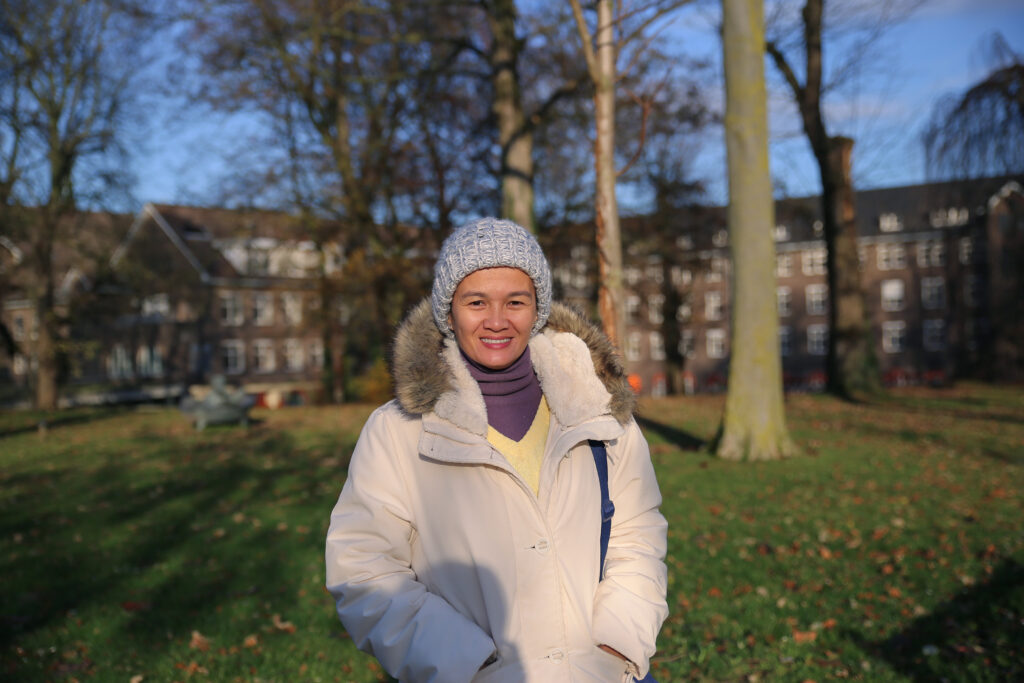
We thank Juvie for her story of perseverance and growth.
[1] Human Rights Watch – Philippines: Officials ‘Red-Tagging’ Indigenous Leaders, Activists
